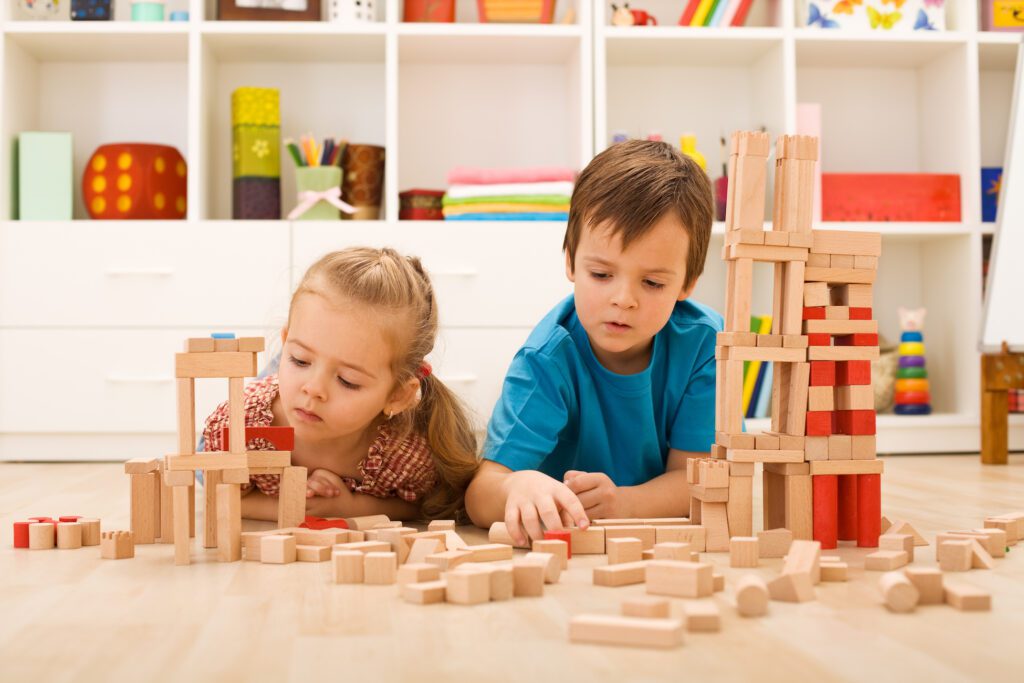Benefits of Building Blocks for Children
Playing with building blocks has been around for centuries and has been a staple toy for children’s play time. As schools place greater stress on academic preparation and early education, it has become imperative for parents and educators to recognize the benefits of learning through play. Building blocks are a perfect fit for this type of learning as they enhance children’s physical and mental abilities while being enjoyable.
According to child development experts, there is a strong connection between play and learning, and play is an integral part of children’s development. Playing with building blocks is one of the most effective ways to provide children with opportunities to learn, experiment, and explore at the same time.


Enhancing fine motor skills through building blocks
One of the primary benefits of playing with building blocks is the improvement of fine motor skills. Children manipulate the blocks by holding and moving them around, which helps in the development of hand-eye coordination and enhances their fine motor skills. As their skills improve, children can line up blocks more accurately and build more robust structures, leading to a greater sense of achievement.
Building blocks also help in developing problem-solving and creativity skills. As children construct their various designs, they are constantly looking for new ways to build them. They are encouraged to think creatively and find innovative solutions to challenges they encounter, such as figuring out what to do when the blocks fall or topple over.
Types of Building Blocks and their benefits
There are different types of building blocks available, each with unique benefits. The most common types of building blocks include:
Wooden blocks – These blocks are sturdy and straightforward, making them great for young children. Wooden blocks are often used to teach basic concepts like colors, shapes, and sizes as well as simple structures.
Plastic blocks – These blocks come in different colors and shapes, often with intricate designs that promote creativity and excellent problem-solving skills.
Foam blocks – These blocks are lightweight and typically oversized, providing safe and easy-to-build structures without the risk of injury.
Magnetic blocks – These blocks use their magnetic poles to become attractive and connect. They offer a new level of building where the child can create more complex structures.
Mathematics, Engineering and Science: Learning through building blocks
Incorporating learning through building blocks into a child’s daily life provides educational opportunities for teaching different subjects like mathematics, engineering, and science. Basic counting, patterns and shapes can be taught through simple block construction. Mathematical concepts are also introduced through the grouping and stacking of blocks while learning shapes and sizes.
Engineering concepts are introduced through the design and construction of intricate building block structures. Children learn about the importance of structural balance as they build tall and intricate structures with different blocks. This type of learning can spark an interest in engineering and set them up for academic success.
Building blocks can also be used to explore science concepts like friction, gravity, and balance. Children build marble runs and create different types of ramps to understand how forces influence the movement of objects. These types of experiments provide children with a hands-on way to learn and explore various scientific concepts that will benefit their future academic and career path.
Social and Emotional Development
Playing with building blocks is a collaborative activity that helps children develop social and communication skills. The activity encourages children to share ideas, interact, and negotiate with each other, improving their interpersonal skills. Collaborative play with blocks also helps children to develop empathy as they communicate their ideas and work together to resolve conflicts.
In addition to social skills, building blocks promote emotional development. Children experience a sense of satisfaction and accomplishment when they complete a structure or solve a problem. This sense of achievement helps boost their self-confidence, self-esteem, and overall emotional well-being.
Incorporating Building Blocks into Children’s Daily Routines
Parents and educators can easily incorporate building blocks into children’s daily routines as part of their learning process. One approach that is gaining popularity is to have a dedicated space for building blocks where children can access them whenever they want. Another way is to offer building blocks as a reward or activity for good behavior or completing chores. Additionally, building blocks can be used during supervised play and to encourage children to work, learn, and socialize with others.
Conclusion
Building blocks offer a fun and interactive way to teach children essential academic, social, and emotional skills. The variety of blocks available in the market makes it possible to tailor the play experience according to the child’s interests and learning abilities. Playing with building blocks can have a positive impact on children’s cognitive, social, and emotional development while providing the benefits of learning through play. Encouraging children to play with blocks and incorporating them into daily routines is an excellent way to support children’s academic and personal growth while having fun.
